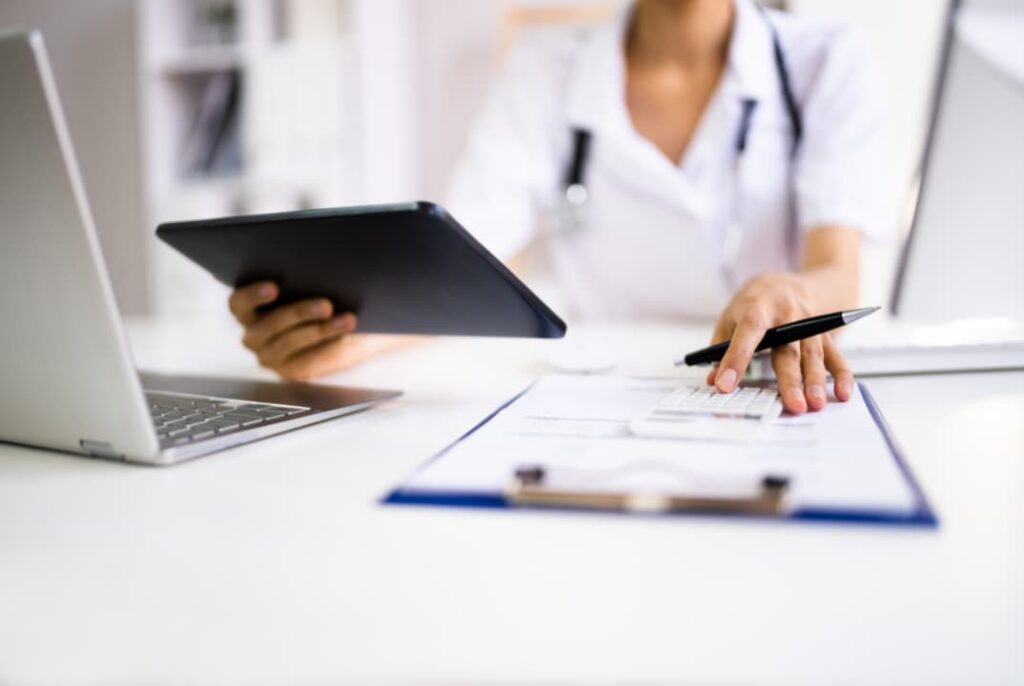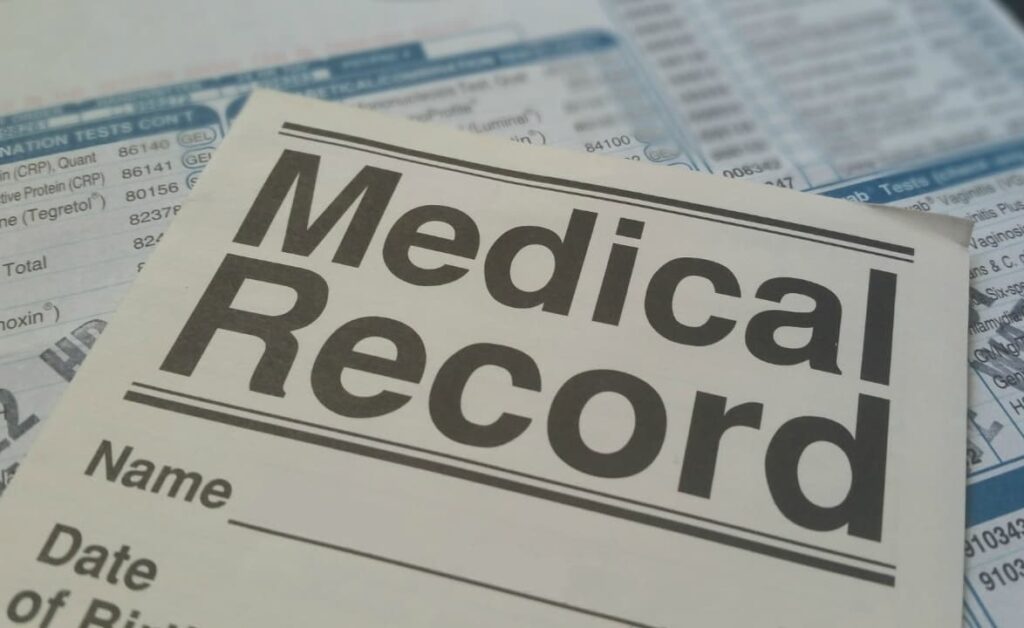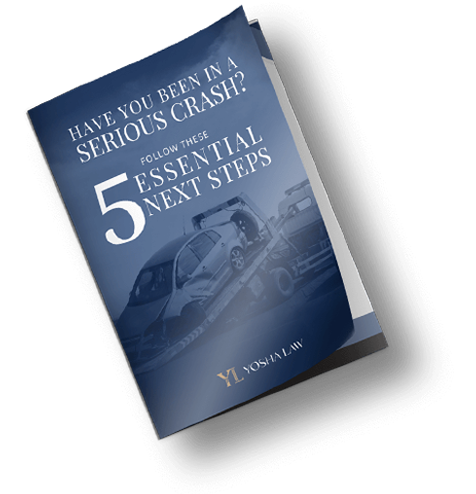If you’ve been injured in a car accident, slip-and-fall incident, or medical mistake and seek compensation for your damages from the responsible party, documenting your injuries and treatment is paramount. While seeking medical care may be evident after an accident, it should also be noted that maintaining accurate records of not only your injuries but also of your treatment is crucial when attempting to hold the negligent party accountable.
To ensure that all of your damages are recovered after an accident, your personal injury lawyer will need to have rock-solid evidence of your physical injuries, what medical treatments you’ve had, and what future medical procedures are to be expected. Proper documentation is the key to a successful personal injury lawsuit.
The Importance of Documenting Injuries and Medical Treatment for a Personal Injury Case
To file a personal injury lawsuit and receive the compensation you’re entitled, you must provide evidence of physical injuries and financial losses. Failure to do so will most likely result in a denial of claims or, at the very least, a reduction in your settlement amount. The more substantial your medical evidence, the higher the likelihood of a fair compensation package.
Establishing the Extent of Injuries
Without seeking medical treatment immediately after an accident, no documented proof of injuries exists, no matter how obvious they may be. Medical documentation provides irrefutable proof that you sustained injuries, their extent, and information on current injuries and their possible long-term physical effects and medical costs.
Proving Causation
To win a personal injury lawsuit, the plaintiff must prove that the negligent party caused both injury and financial damages. Medical records are the most substantial evidence of when and how the injuries occurred. Without medical records, the defendant can easily create doubt as to how and when the injuries happened.
Tracking Medical Costs
Injuries caused by an accident aren’t limited to the immediate medical care a plaintiff receives. While some injuries can be attended to initially, most require follow-up visits. Maintaining accurate records of all medical treatment and associated costs helps to compensate for all financial hardships. Keeping all receipts, bills, and documentation received at medical appointments is essential to ensure total compensation for all expenses.
Providing Evidence in Court
A personal injury lawsuit requires evidence. You can provide the legal system with proof of your damages by tracking and documenting your medical treatment and associated costs. No matter how apparent your injuries are, they won’t be acknowledged without medical proof. The stronger this evidence is, the stronger your claims of injury and financial hardships will be.
Protecting Against Legal Challenges
The negligent party’s legal team, either their lawyers or a team of insurance company claims adjusters, will do all they can to deny or downplay liability. Collecting medical evidence is paramount to providing proof of the extent of your injuries and the financial hardships they have caused. Your personal injury lawsuit can quickly be challenged without detailed and extensive medical documentation.
Facilitating Settlement Negotiations
Although many personal injury lawsuits are settled during the discovery phase, when both legal teams meet to provide evidence, this doesn’t mean that the defendant’s team will quickly offer a fair settlement. While they may offer compensation, without proper medical and other documentation, the injured party won’t receive payment for all of their damages.
Types of Medical Evidence for a Personal Injury Lawsuit
Gathering all medical documentation, invoices, bills, and other proof of injury and financial damages is of utmost importance when seeking fair compensation after an accident. This paperwork goes far beyond medical bills and can include the following:
- Medical records – These can include but are not limited to hospital intake and discharge papers, doctors’ diagnosis notes, surgical reports, MRI/CAT scan images and X-rays, and prognosis reports. Obtain all healthcare providers’ documents relating to the injury.
- Photographic evidence – Photographs or videos of the injury from when it occurred and throughout the healing process can provide valuable proof of the physical harm caused by the accident.
- Witness testimony – Witness testimony can be either those who saw the accident occur and/or those who have seen firsthand how your injury has changed your life.
- Expert testimony – Medical professionals can testify about the severity of your injury, expected future medical care, and how the accident has significantly affected your life.
- Medical bills – Detailed medical documentation from all healthcare providers can prove the costs of medical treatment, surgeries, rehabilitation, and all other expenses related to the injury.
- Prescription records – To demonstrate the costs associated with medical care, invoices and receipts for required prescriptions and medical supplies should be gathered and maintained.
- Proof of lost wages – Employer statements on company letterhead, tax returns, and pay stubs can prove typical monthly income and a loss of wages.
- Financial records – Bank statements and receipts for any out-of-pocket expenses related to the injury can further prove financial losses.
- Future medical care plans – These can help prove expected medical care, treatment, and professional assistance due to the injury.
- Injury and pain journal – Maintaining a daily or weekly record of pain, medical issues, or emotional changes helps establish a timeline of the injury’s ongoing effects.
Critical Factors for Obtaining Medical Documents and Records for a Personal Injury
Gathering medical evidence for a personal injury accident lawsuit is crucial to ensuring you receive total compensation for all damages. Although your personal injury attorney can assist you with the process, being proactive and maintaining meticulous records is essential.
Maintain Detailed Records
Keep copies of all injury-related correspondence, invoices, receipts, and any paperwork included during doctor’s visits, rehabilitation, and other visits and expenses. Copies can be kept in a bookbinder or within files. Doing so will ensure you have all your evidence in one easy-to-locate place.
Request Medical Records
Communicate with all healthcare providers about receiving all documents related to your injury. Sometimes, you may be required to fill out an authorization form and/or pay a fee to release these records.
Speak With Your Personal Injury Attorney
Your personal injury lawyer will know which documents, receipts, and invoices are required for your case. By working closely with them, they can guide you in gathering the strongest possible evidence.
Documenting Your Injuries and Treatment for a Personal Injury Lawsuit
Gathering medical evidence and other pertinent documents to prove injury and financial damages in a personal injury lawsuit may initially seem like a simple task. However, this vital step to obtaining compensation for damages isn’t as straightforward as it seems. The legal system demands absolute proof, and obtaining it can sometimes require guidance.
The savvy team at Yosha Law can help you gather the evidence necessary to ensure the best possible outcome. Schedule a free appointment today. Remember, the statute of limitations clock starts ticking when your injuries occur, so don’t delay.









